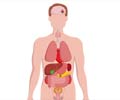The number of mutations in a gene previously found to be associated with early-onset Parkinson's disease may influence the age at which the condition develops
CHICAGO - The number of mutations in a gene previously found to be associated with early-onset Parkinson's disease may influence the age at which the condition develops; even individuals who carry just one mutated copy may be more susceptible to Parkinson's disease, according to a report in the June issue of Archives of Neurology, one of the JAMA/Archives journals.
Parkinson's disease affects about 1 percent of individuals age 60 years or older and 4 to 5 percent of those age 85 years or older, according to background information in the article. The neurodegenerative disorder is characterized by tremors, rigid movements, difficulty walking and a mask-like facial appearance. Though much about the development of Parkinson's disease remains unknown, family history has been found to significantly increase risk. Researchers have located several genes that may be implicated, including the parkin gene. About 50 percent of individuals with "juvenile" parkinsonism (in which features of Parkinson's disease develop before age 21 years) and 10 to 25 percent of those with early-onset (before age 50) Parkinson's disease have mutated parkin genes.Mei Sun, M.D., Ph.D., Massachusetts General Hospital and Harvard Medical School, Boston, and colleagues studied 183 families in which two or more members had Parkinson's disease. The families also met one of two other criteria: either one individual in the family developed Parkinson's disease before age 54 years, or two affected siblings had identical versions of the parkin gene. Because siblings inherit one chromosome from their mother and one chromosome from their father, they can share either zero, one or two versions of each gene. At least one member of each family underwent comprehensive genetic screening to determine the number and nature of any mutations to the parkin gene.
Twenty-three (12.6 percent) of the families screened contained at least one member with a mutated parkin gene. Among those families, 10 (43 percent) had at least one member with two different mutations; three (13 percent) had at least one member with two copies of the same mutation; and 10 (43 percent) had at least one member with one mutated parkin gene and one normal parkin gene. Individuals with one mutated gene and one normal gene are known as heterozygotes; researchers had not previously determined whether heterozygotes were at increased risk for Parkinson's disease. Patients with parkin mutations developed Parkinson's disease at an average age of 42.9 years. Among the families who were selected because two siblings shared the same version of the parkin gene, heterozygotes developed Parkinson's disease an average of 11.7 years earlier than those with no mutations, and those with two or more mutations developed the condition 13.2 years earlier than heterozygotes.
"In conclusion, parkin mutations are not rare in this selected subset of familial Parkinson's disease samples (12.6 percent)," the authors write. "Single parkin mutations may increase susceptibility to the disease and decrease the onset age of Parkinson's disease (mean onset age, 49.6 years)." The fact that even heterozygotes developed Parkinson's disease at an earlier age than those with two normal copies indicates that the gene's effect may be stronger than previously recognized, and that screening for mutations in the gene may help identify those at risk of developing the condition.











